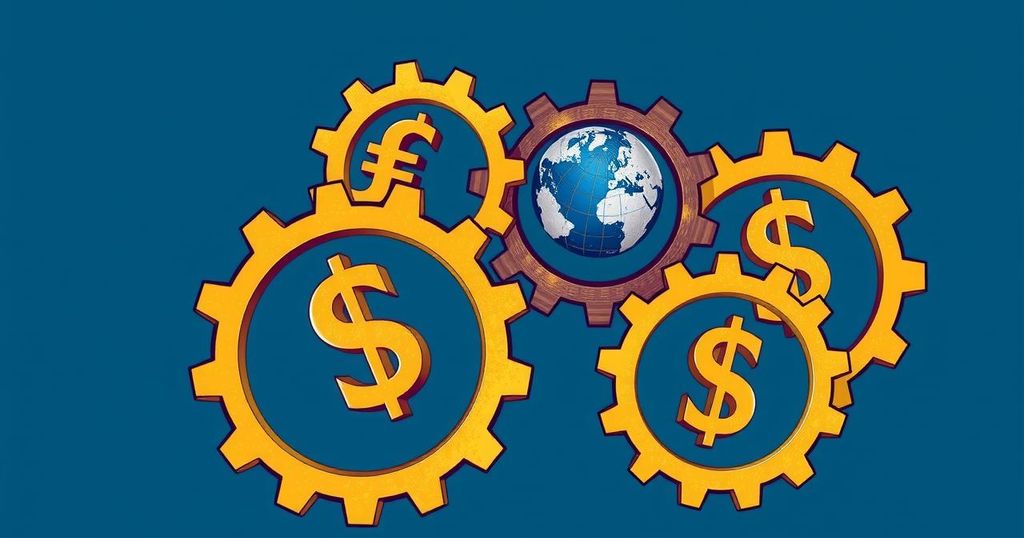Indian-American Leaders Denounce Trump’s Reciprocal Tariffs as Economic Threat

Indian-American lawmakers have condemned President Trump’s reciprocal tariffs on India as ‘reckless,’ urging dialogue to resolve economic conflicts. The tariffs, imposing a 26% charge on India, are said to harm competitiveness and may lead to increased consumer prices. Various Congress members emphasized the need for protecting working families as well as the importance of reassessing these policies to sustain economic relations and growth.
Indian-American representatives in Congress and the diaspora expressed strong disapproval of the reciprocal tariffs imposed by President Donald Trump, labeling them as “reckless and self-destructive.” They emphasized the necessity for dialogue between the United States and India to resolve the arising economic challenges. On Wednesday, Trump announced a 26 percent tariff on India, positioning it as a response to India’s 52 percent tariff on U.S. products. This move is part of Trump’s broader initiative to address higher tariffs on American products imposed by approximately 60 countries.
Lawmakers voiced concerns over the potential negative effects of these tariffs on India’s competitiveness in the U.S. market. Congressman Raja Krishnamoorthi criticized the universal tariffs stating they unfairly burden working families to benefit wealthier Americans. He mentioned, “These latest so-called ‘Liberation Day’ tariffs are reckless and self-destructive, inflicting financial pain on Illinois at a time when people are already struggling to keep their small businesses afloat.”
Furthermore, Congressman Ro Khanna remarked in a video that the lack of strategy or consultation surrounding the tariffs indicates a serious threat to the economy. He elaborated on the adverse effects, saying that everyday prices are expected to rise across various sectors, contributing to uncertainty. “Trump is literally trying to destroy our economy with his Liberation Day tariffs slapped overnight,” Khanna stated, acknowledging the potential risk of stagflation due to these policies.
Dr. Ami Bera, an Indian-American Congressman, also criticized the tariffs in a post, asserting that they would not lead to prosperity for America but would instead impose higher costs on consumers. Alongside this, Ajay Bhutoria, a former advisor to President Biden, echoed the view that the tariffs on Indian exports would diminish competitiveness in key sectors, imposing significant financial burdens on American families, with estimates reaching $2,500 to $15,000 in additional annual costs.
Bhutoria highlighted the potential detrimental impact on both American households and Indian industries, urging both nations to collaborate and minimize burdens on consumers and producers. Wendy Cutler, Vice President of the Asia Society Policy Institute, warned that the reciprocal tariff rates could shock trading partners and cause economic damage, resulting in higher prices and reduced investment in the U.S. market. She clarified that America’s behavior towards its partners could trigger retaliatory responses, leading to broader economic ramifications, such as diminished global trade and investment prospects.
In summary, the imposition of reciprocal tariffs by President Trump has sparked significant backlash from Indian-American lawmakers, who argue that these measures are economically harmful and detrimental to both nations. The voices of concern emphasize the potential for rising consumer costs and lower competitiveness of goods, alongside calls for diplomatic engagement to mitigate adverse effects on the economy. Lawmakers advocate for a reassessment of these policies to maintain the strength of the US-India economic partnership while avoiding recession risks.
Original Source: www.ndtv.com








